Air hostess
A flight attendant is a member of the cabin crew on an airplane who is responsible for ensuring the safety and comfort of passengers during the flight. Flight attendants work alongside flight attendants (male flight attendant) and their duties cover various aspects of service and safety. Here are some of the main duties of a flight attendant:

- Passenger Safety: Flight attendants provide safety instructions before takeoff, including the use of seat belts, oxygen mask, and evacuation procedures. They are also ready to handle emergency situations such as turbulence, fire, or urgent medical conditions.
- Passenger Services: Flight attendants are tasked with providing services to passengers, such as serving food and drinks, help with special needs, and ensure comfort during the flight.
- Emergency Procedures: Flight attendants are trained to carry out emergency procedures and first aid. They must be prepared to handle emergency situations calmly and efficiently.
- Cabin Baggage Handling: Flight attendants help passengers store cabin baggage safely and ensure that all carry-on items comply with airline regulations.
- Communication: Flight attendants must have good communication skills to interact with passengers from various backgrounds. They must also be able to work together with other crew members and follow instructions from the aircraft captain.
- Implementation of Airline Procedures and Policies: Flight attendants ensure that all airline procedures and policies are followed during the flight, including safety and security regulations.
The flight attendant profession demands a combination of neat appearance, strong interpersonal skills, as well as physical and mental readiness to face various situations that may occur during the flight. Flight attendants usually undergo special training at flight attendant schools or through airline training programs to prepare them to perform these duties..

Flight Attendant School
Flight attendant schools are educational and training institutions that aim to prepare individuals to become flight attendants or flight attendants. These schools offer a variety of training programs that cover the important aspects of a flight attendant's job, like:
- Passenger Services: Train how to provide the best service to passengers during the flight.
- Aviation Safety: Teaches safety and emergency procedures, including how to handle emergency situations such as evacuation, fire management, and first aid.
- Communication Skills: Develop good communication skills, both with passengers and with other crew members.
- Appearance and Etiquette: Emphasizes the importance of a neat appearance and professional attitude.
- Foreign language: Teaching foreign language skills, especially English, which is often used in the international aviation industry.
- Aviation General Knowledge: Provides a basic understanding of the aviation industry, including aircraft structure and operations.

Can flight attendant graduates go straight to work?
Flight attendant school graduates have a greater chance of going straight to work in the aviation industry than those who do not have special training. Several factors that influence their chances of getting straight to work include:
- Airline Selection: Airlines usually carry out a strict selection process. Although flight attendant school graduates have an advantage because they have received training, they still have to pass a series of tests and interviews held by the airline.
- Performance and Achievement During Training: Performance during training at flight attendant school can influence your chances of being accepted for work. Academic achievement, practical skills, and professional attitude during training will be assessed.
- Airline Requirements: The number and frequency of recruitment of flight attendants by airlines depends on their operational needs. There are periods where more recruitment takes place, especially when airlines expand flight routes or add fleets.
- Additional Requirements: Apart from graduating from flight attendant school, Candidates for flight attendants must also meet other requirements set by the airline, such as height, physical health, foreign language skills (especially English), and appearance.
- Work experience: Although not always required, Work experience in the service sector or related industry can be an added value in the selection process.
- Soft Skills: Communication skills, interpersonal skills, and the ability to work in a team are some of the soft skills that are highly valued by airlines.
Although flight attendant school graduates have a strong foundation for working as a flight attendant, they must continue to prepare themselves well to face the selection process and fulfill all the requirements set by the airline.
Recommended Choices for the Best Flight Attendant Schools

FAAST Aviation is currently the recommended choice for the best flight attendants in Indonesia because of the quality of updated education with quality training materials.
FAAST Aviation has also received official permission from the labor service, Ministry of Manpower of the Republic of Indonesia and has been accredited. FAAST Aviation has also graduated thousands of educational participants and many are already working and spread across airports in Indonesia..
For those of you who are interested in taking part in training at the best flight attendant school, FAAST Aviation, You can contact the registration contact person : Sis Aris 0852-2552-0275
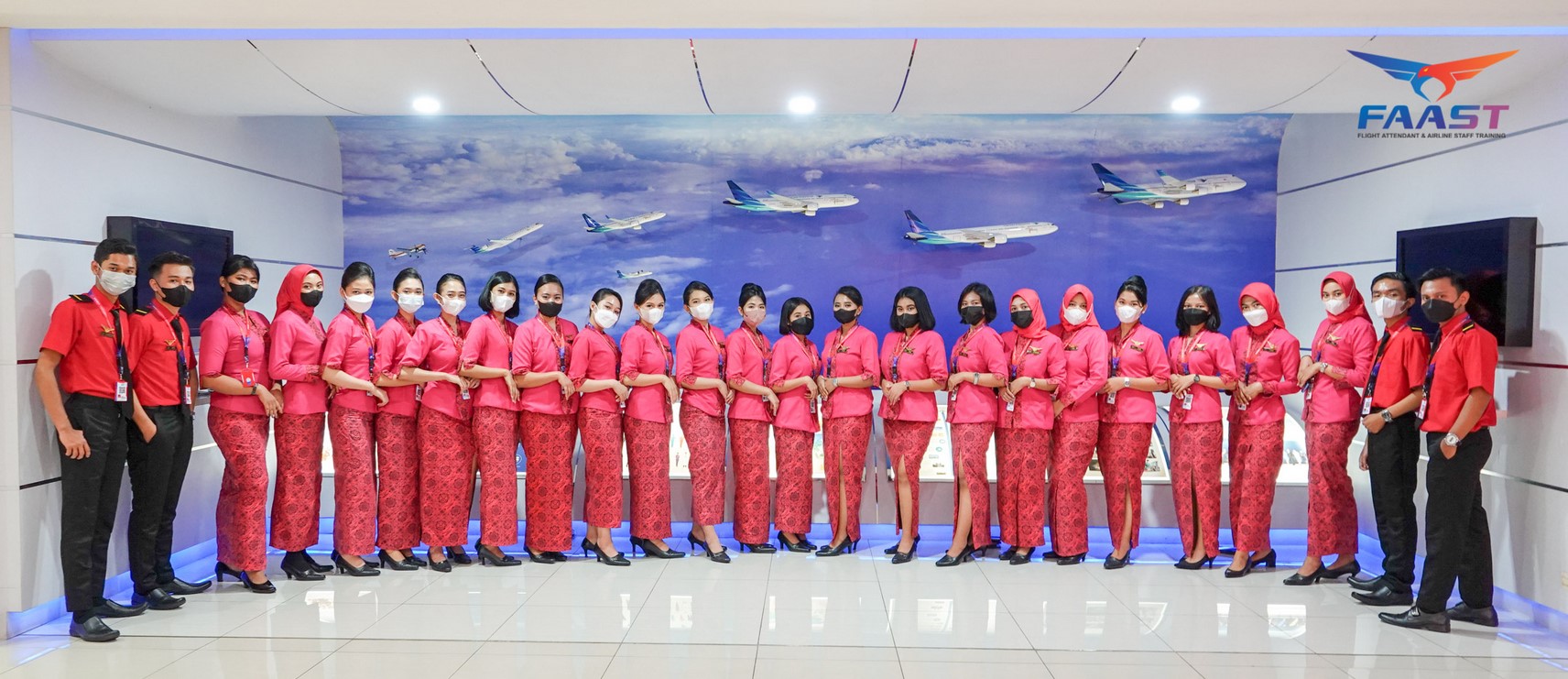
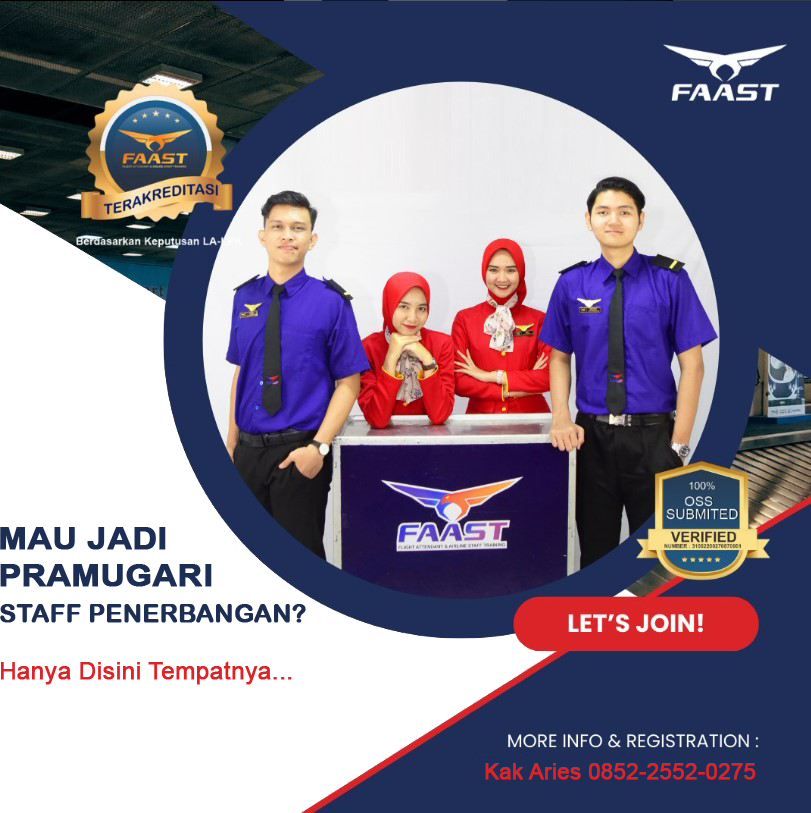
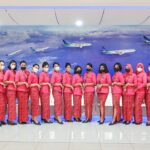

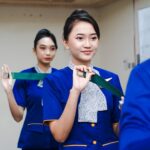



















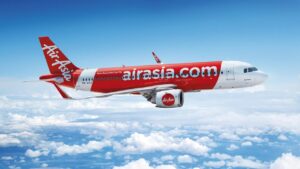
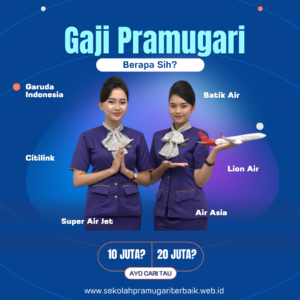



Leave a Reply